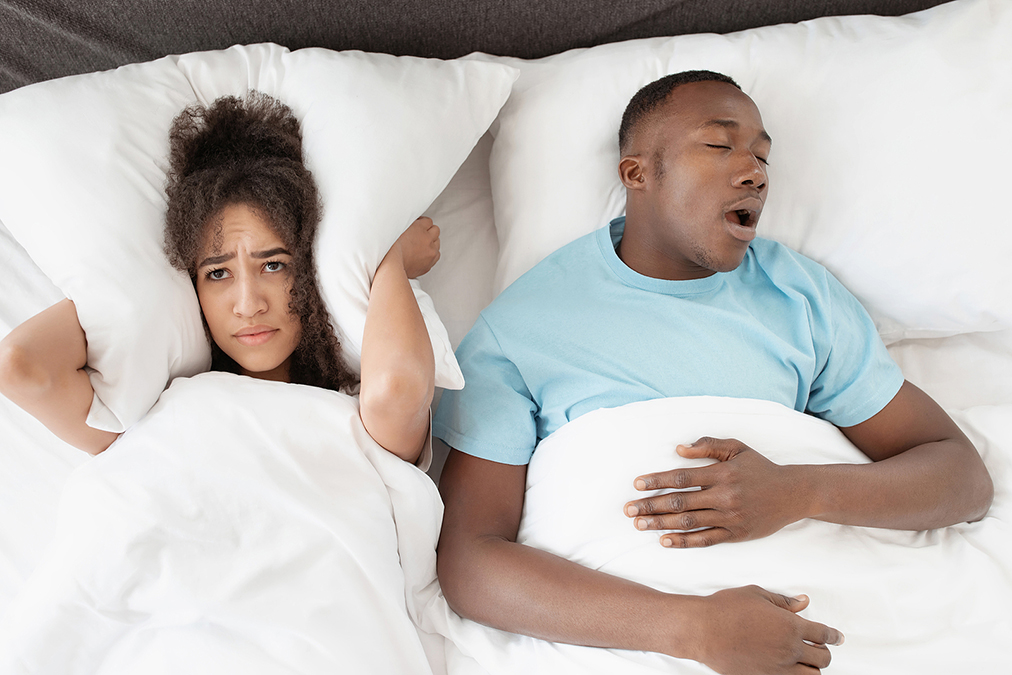 People with cardiovascular disease are much more likely than the rest of the population to develop sleep apnea.
People with cardiovascular disease are much more likely than the rest of the population to develop sleep apnea.
A study in the Journal of Clinical Sleep Medicine now demonstrates how you can treat your sleep apnea while simultaneously treating the cardiovascular disease that may cause it.
If one of the main causes of sleep apnea is cardiovascular disease, and one of the main treatments for cardiovascular disease is exercise, then we are in trouble, because people with sleep apnea tend to be too tired during the day to do any exercise.
Without the option of exercise, they cannot remove the primary cause of their sleep apnea and will, inevitably, continue to suffer from both.
A team of American and Australian scientists decided to investigate whether a sleep apnea treatment like CPAP (continuous positive airway pressure) offered an escape route from this vicious circle.
They obtained information already collected by the sleep apnea cardiovascular endpoints trial that included the health information of people diagnosed with both cardiovascular disease and sleep apnea.
The 2,601 subjects were all between the ages of 45 and 75.
They were divided into two groups. The first received CPAP as well as normal heart care, and the second received normal heart care alone.
At the beginning of the study and again after six, 24, and 48 months, the subjects completed the Godin-Shepard Leisure Time Exercise Questionnaire to record their physical activity levels.
Those in the CPAP group reported 20% higher moderate physical activity levels than those in the normal heart care group. This meant exercise that was not necessarily a treadmill session, which qualifies as high-intensity activity, but which did include activities like brisk walking and stair climbing that can make up such a large percentage of our daily exercise quotas.
In addition, the CPAP group reported fewer limitations to vigorous exercise; limitations that would usually include exhaustion, aching muscles, lack of motivation, and so forth.
Lastly, subjects in the CPAP group were more likely than the other participants to meet the usual recommendation set by many health organizations of 150 minutes of vigorous exercise per week.
Therefore, CPAP can not only help you to sleep better; it can also help you to feel more energetic during the day, meaning that you can get the right amount of exercise. This in turn can help you to combat the cardiovascular disease that may be causing your sleep apnea.
The only problem with CPAP is that most people stop using it after a short while. That’s where our simple Stop Snoring and Sleep Apnea exercises come in.
And if your cholesterol is too high or your arteries are clogged, learn how cutting out one ingredient you didn’t even know you were consuming can normalize cholesterol levels and clear out clogged arteries starting today…

 Overcoming IBD
Overcoming IBD Multiple Sclerosis
Multiple Sclerosis Banishing Bronchitis
Banishing Bronchitis Gum Disease Gone
Gum Disease Gone Overcoming Onychomycosis
Overcoming Onychomycosis Neuropathy No More
Neuropathy No More The Prostate Protocol
The Prostate Protocol Brain Booster
Brain Booster
 Ironbound
Ironbound
 Solution for Shingles
Solution for Shingles
 The Bone Density Solution
The Bone Density Solution
 The Ultimate Healing Protocol
The Ultimate Healing Protocol
 The Parkinson's Protocol
The Parkinson's Protocol
 The Chronic Kidney Disease Solution
The Chronic Kidney Disease Solution
 Overthrowing Anxiety
Overthrowing Anxiety The Fatty Liver Solution
The Fatty Liver Solution The Hypothyroidism Solution
The Hypothyroidism Solution
 The End of Gout
The End of Gout The Blood Pressure Program
The Blood Pressure Program
 The Oxigized Cholesterol Strategy
The Oxigized Cholesterol Strategy
 Stop Snoring And Sleep Apnea Program
Stop Snoring And Sleep Apnea Program
 The Arthritis Strategy
The Arthritis Strategy The Vertigo & Dizziness Program
The Vertigo & Dizziness Program The 3-Step Diabetes Strategy
The 3-Step Diabetes Strategy Hemorrhoids Healing Protocol
Hemorrhoids Healing Protocol The Erectile Dysfunction Master
The Erectile Dysfunction Master Weight Loss Breeze
Weight Loss Breeze The IBS Program
The IBS Program The Insomnia Program
The Insomnia Program The Migraine and Headache Program
The Migraine and Headache Program The Neck Pain Solution
The Neck Pain Solution The Menopause Solution
The Menopause Solution The Ejaculation Master
The Ejaculation Master The TMJ Solution
The TMJ Solution The Acid Reflux Solution
The Acid Reflux Solution The Fibromyalgia Solution
The Fibromyalgia Solution The Psoriasis Strategy
The Psoriasis Strategy